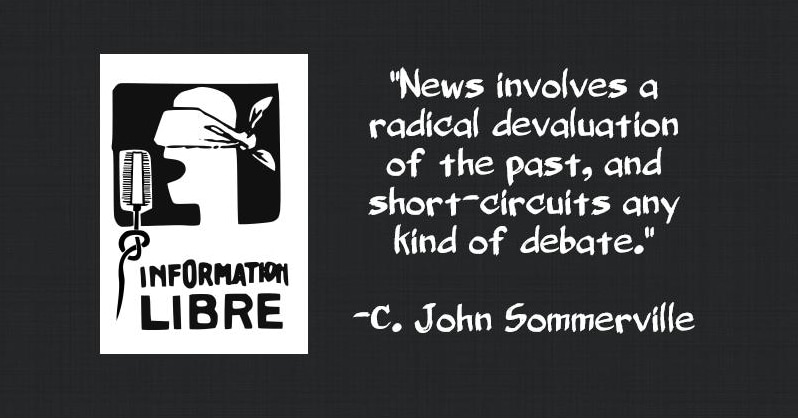In this social media dominated era, news is increasingly being presented as short, headline oriented, clickbait tidbits of information with little to no context. The phenomenon can be dubbed the “Buzzfeed mentality,” after the eponymous mega-site dedicated to viral content, which has fundamentally reshaped the way news is reported.
Short-form clickbait Buzzfeed style journalism, now predominates online and is encroaching into the print and television media spheres. This cursory way of presenting information may actually be dumbing us down rather than keeping us informed.
The Trend Towards Short Form Clickbait Journalism
In a prophetic piece from 1991, C. John Summerville, a Professor of History at the University of Florida, and senior fellow at Harvard's Center for the Study of World Religions, noticed a few of these trends beginning. He states:
"We’re too busy to manage anything but the News, and we’re getting almost too busy even for that. So the papers and the TV stations are learning to package it for us in ever more “attractive,” i.e., ephemeral, forms."
"What happens when you sell information on a daily basis? You have to make each day’s report seem important, and you do this primarily by reducing the importance of its context...So News involves a radical devaluation of the past, and short-circuits any kind of debate."
Whatever the reasons for the rise of the Buzzfeed mentality, when short form news accounts for most of our reading and viewing, it has a deleterious effect on our mind. In the absence of dialog, debate, and big-picture perspective, we start to think that opinions are the same as facts. Facts themselves are always based on deeper causes that there is no time, space, or desire to elaborate on.
“News is a concentration on the ephemeral—the flotsam and foam on the surface of history. It reminded us that it is not the job of the News to tell what all this means in the Bigger Picture. It’s nobody’s job to do that anymore,” Sommerville states.
How to Avoid the Buzzfeed Mentality
Fortunately, the same digital sphere which has given rise to the Buzzfeed mentality also inherently allows for long form journalism without the space constraints and economic pressures of traditional media. Long-from journalism is currently thriving online via apps which aggregate the best long form news sources, filtering out more superficial results with low word counts. Investigative journalism sites like ProPublica and The International Consortium of Investigative Journalists, conduct in-depth, long-term reporting on single topics of interest, often with the goal of facilitating reform.
If most news tends to focus on superficial topics while avoiding more complex information, Summerville also suggests that we can circumvent this phenomenon by taking the time to read books – both fiction and non-fiction - which allow us to explore issues in greater detail:
"If News were just one of many things that we read each day, it wouldn’t have the same impact. If we read philosophy, history, science, theology—regularly—we would be able to make much better sense of the day’s events...We might find the novel more impressive the second time around. We are impressed again with the author’s insight, not dismayed by an editor’s shallowness."
Books and long form journalism allow us the opposite of what short form news provides – the opportunity to deepen our understanding of many the facts that underlie world events. Now we just need to make time to read them.
~
You May Also Like:
5 Ways to Avoid Being Manipulated and Dumbed Down by the Media
4 Pieces of Stoic Wisdom for Dealing With Negative News Media
How to Make Yourself Immune to Propaganda










